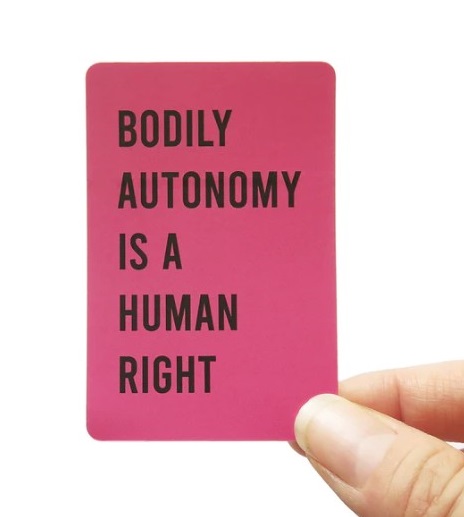
Bodies. Everyone has one. But how we think and feel about our bodies can be influenced by a range of factors, from self-worth and self-esteem, to societal feedback, to how we were raised. If you’re like a lot of people, there are probably some things about your body you’re uncomfortable or unhappy with, maybe even things you’d like to change. The body acceptance and positivity movements encourage us to celebrate our bodies, no matter what messages we might have received about them, and to learn to love ourselves both from the inside out and from the outside in. But these movements are subject to criticism on the basis that they might still perpetuate potentially harmful beauty standards, and that they can push all-or-nothing acceptance at the expense of people’s very real concerns about their bodies. It can be hard to know if accepting one’s body should be the main goal, or if there’s a more nuanced way to look at people’s relationships to their bodies. One example of such a discussion exists around the decision to make changes to one’s body.
The decision to make changes is not one to be taken lightly. Although some changes, such as tattoos and piercings, have gained widespread acceptance and might seem like no big deal, some, such as surgeries and other medical interventions, can come under much scrutiny or judgment from others. Even more confusing is the fact that it can almost seem like we’re being pulled in two directions—either we must try to change our body in order to “fit in” with society’s ideals, dooming ourselves to disappointment if our efforts are unsuccessful, or, to borrow from the body positivity movement, we must “accept” our body just as it is and never try to change. But there’s a middle ground in how we think about our bodies.
One way forward, is the idea of bodily autonomy. That means, you and only you get to make the decisions that are best for you and your body. You might want to consult with professionals or important people in your life, to get advice, support, and guidance. This step can be especially important in the case of more major, or long-lasting, changes. However, ultimately, you get to do what makes you happy. And you don’t become less of a “real person” just because you made a particular choice. You still get to be fully human, fully YOU, regardless of what you choose. In fact, for some people, a change might even make them feel more “them” than they were before.
To summarize, here are some key points:
- Everyone has the right to feel good about their body, whatever it looks like or however they’ve been told to think about it by other people
- No one has the right to make you feel “less than” because of your body
- Your choice to change your body (or not) is yours alone–you get to decide how to inhabit the world
Changing one’s body is a big decision, and is not for everyone. Again, no one should be made to feel “less than” because of their decision. Everyone should feel free to make their own choices about their own body – that’s what bodily autonomy is all about!
__________________________________________________
This blog is authored by Laura Kiernan, LSW. IntraSpectrum Counseling is Chicago’s leading psychotherapy practice dedicated to the LGBTQ+ community, and we strive to provide the highest quality mental health care for multicultural, identity, kink, polyamorous, and intersectional issues. For anyone needing affirming and validating support, please click here or contact us at help@intraspectrum-chicago.com.





 Today, July 26th, is National Disability Independence Day. This annual commemoration marks the day in 1990 when the Americans with Disabilities Act (ADA) was signed into law. The ADA enshrined several crucial civil rights protections for individuals with disabilities, but it still falls short of its intended goals after over 30 years on the books.
Today, July 26th, is National Disability Independence Day. This annual commemoration marks the day in 1990 when the Americans with Disabilities Act (ADA) was signed into law. The ADA enshrined several crucial civil rights protections for individuals with disabilities, but it still falls short of its intended goals after over 30 years on the books.